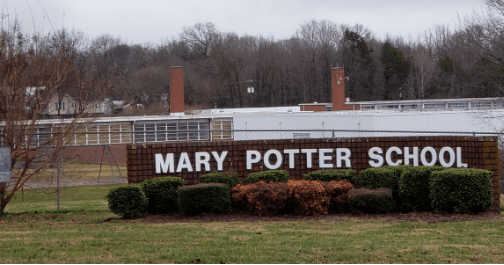100.1 FM / 1450 AM WIZS; Local News broadcasts M-F 8am, 12pm, 5pm
-Information courtesy NC House Rep. Terry Garrison’s Sept. 2019 newsletter
North Carolina House Representative for District 32 Terry Garrison has written and released his latest from the NC General Assembly. In the September 2019 newsletter, Garrison and his office released the following text:
The last couple of months have been extremely demanding and chaotic to some degree at the NC General Assembly. While some business of the legislative body was standard procedure, some was nontraditional, and one major action was downright deceitful in my view.
The various standing committees continued to do their work and bills continued to be considered at the General Assembly in August and September. A total of 93 budget bills were considered by the House and Senate during this two (2-month) period.
State government operated under a continuing budget resolution during the last couple of months. However, due to the budget veto not being considered, a piecemeal budgeting approach, or mini budgeting, began in earnest in August as an alternative to the standard procedure for approving the 2019-2020 state budget. With this piecemeal budgeting method, state employees received a 5% pay increase with the passage of HB 226. Also, State Highway Patrol Officers will receive a 2.5% increase with the passage of HB 126. Pay increases for teachers and retiree supplements were re-referred to the Committee on Appropriations through HB 426.
A three-judge panel of the State Supreme Court ruled that State Legislative District lines discriminated against Democratic voters in violation of the state constitution. The court ruling struck down the Republican-drawn maps as illegal partisan gerrymanders and gave lawmakers two weeks to draw new district lines for the 2020 Elections. Both the House and Senate have drawn new maps that have been submitted to the three-judge panel. A decision is forthcoming as to whether or not the maps will be approved or new maps drawn by a master under the direction of the judge panel.
On the morning of 9-11-2019, a vote on the Governor’s Veto Override Bill was held during what was slated to be a No Vote Session per understanding of Democrats in the House. The bill passed on a vote count of 55 Yes (Republicans) to 15 No (Democrats). The Democrats present expressed outrage and protested against a vote on the bill in absence of the majority of Democrats in the House who were not aware of a vote to be taken during that Session. Without question, Democrats had been lied too or deliberately misled so as not to be present for a vote on the bill.
A No Vote Session means that no votes will be be taken during that session. Although the Speaker of the House is not under any constitutional mandate to follow that process, it has been a longstanding practice for advance notice to be given to members for Voting Sessions. Giving advance notice of Voting Sessions provides the opportunity for the rights and interests of citizens to be represented by way of a vote on lawful matters of the state. The vote taken on the budget veto override broke a bond of trust, honor, and respect within the NC House of Representatives that may imperil efforts for times to come for the achievement of bipartisanship support on matters of great importance to citizens of the state.
The relocation of the Department of Health and Human Services (DHHS) to the Triangle North Granville Business and Industrial Park is included in the current budget bill. The Veto Override Bill has now been sent to the Senate for consideration. If the Senate also overrides the Veto Budget Bill, then DHHS will likely come to Oxford, if no changes are made to the bill. Also, the relocation of DHHS could come to Oxford by way of approval of a mini-budget for capital outlay, if the project remains in the bill as now proposed. On the other hand, if the Senate fails to override the Budget Veto Bill, then the matter will be determined during budget re-negotiations which may or may not lead to imminent relocation of DHHS to Granville County.
Medicaid Expansion is still undecided. It was not included in the budget. However, HB 655 Healthcare for Working Families Bill or Carolina Cares Bill offers a form of Medicaid Expansion. The bill has a work requirement component disliked by many Democratic legislators but may be acceptable in order that many persons without healthcare can receive it.
The Small Business Healthcare Bill (SB 86) became law in August and will provide an opportunity for many small business owners without health insurance to now get health care coverage.
















